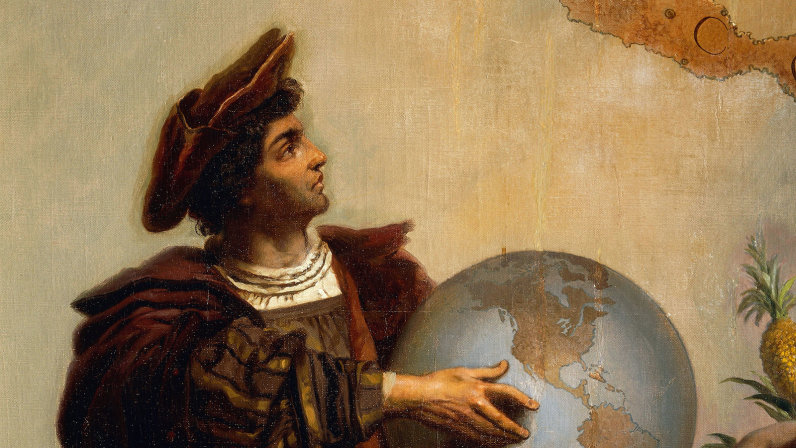Columbus Day
COLUMBUS DAY
By: Lizette Garcia Ortega
Every October 12, which commemorates the arrival of Christopher Columbus to the Carribean and South America in 1492. Columbus believed that he had reached the Indies, but in reality it was not to be as he arrived aboard La Niña, La Pinta, and La Santa Maria, known as the three caravels.
Christopher Columbus was born in Genoa, Italy in 1451. Since he was child, he wanted to be a sailor, but Columbus’s parents did not have enough money. After much study, he concluded that the earth was round and then he had an idea: to travel to China and India by sailing west and crossing the Atlantic Ocean.
Columbus needed money for the trip, and was rejected by the Portugeses because they believed it was dangerous and that it was going to fail. Then, the Italian asked for help from the Catholic monarchs, Queen Isabella and King Ferdinand II of Spain.
On August 3, 1492, Christopher Columbus left Palos, a small port in Spain, known worldwide as the cradle of the Discovery of America. He was accompanied by 90 men and three ships: La Niña, La pinta and La Santa Maria. They sailed along the coasts of North Africa.
From there they left on September 6 heading west, and after 6 weeks of travel, they reached Guanahani, an island located in the Bahamas. This is celebrated mainly in Latin America, Spain and the United States. It has several names but with the same objective “to commemorate the first encounter between two worlds.”
In addition to the valorization of the Hispanic-American cultural heritage, Columbus Day, the cultural richness of our country with the indigenous people, in addition to calling for the analysis of thought and reflection on the situation that was experienced many years ago and that allowed us to have the life that today we have with a mixture of races that try to live in harmony as it should be here and anywhere in the world.
Should we celebrate Columbus Day?
It is known that Columbus didn’t discover America and that he was not the first European to reach America. By the 11th century, the Vikings had sailed to the coasts of North America, landing on the shore of the Greenland. They came to settle for various reasons, but had many problems with natives. It was not until the 1960s that archaeological evidence of their stay in those parts began to be found.
Columbus day has become more controversial lately as we learn of his actions when travelling to new lands. These would be called “crimes against humanity” today, which included slavery and genocide. As more is learned about Columbus, protests grow against recognizing him in parades, school curriculums, and on his usual day of commemoration, October 12. So, should it be Columbus we celebrate, or the real steps that were taken to colonize the Americas.







